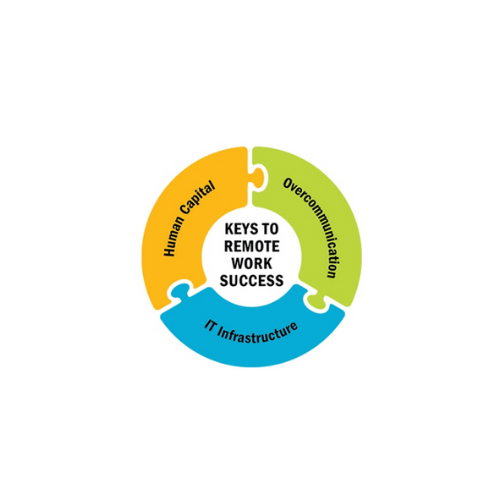“Elevating Remote Work & Ensuring Success in Every Virtual Step”

In today’s world, it’s important to address the unique challenges and opportunities that have emerged, especially the continued evolution of work dynamics in remote working. Grow Asia is well versed in remote working and signifies that it requires a mix of the right culture, processes and technology, also enabling virtual teams to work successfully from anywhere. Further, it involves a combination of effective communication, technology, and support for employees.
Highlighting key strategies to make remote work successful:
Clear Communication:
Use Multiple Channels: Utilize a variety of communication tools such as video conferencing, chat applications, and project management software to keep everyone connected.
Regular Meetings: Schedule regular virtual meetings for team updates, project discussions, and informal check-ins.
Document Policies: Clearly communicate remote work policies, expectations, and guidelines to all employees.

Clear Communication
Technology and Infrastructure:
Provide Necessary Tools: Ensure that employees have the necessary hardware, software, and tools to perform their tasks effectively.
Data Security: Implement robust cyber security measures to protect sensitive information and ensure secure remote access.

Technology and Infrastructure
Establish a Remote-Friendly Culture:
Trust and Autonomy: Trust your employees and focus on results rather than micromanaging. Provide autonomy for employees to manage their time effectively.
Recognition and Appreciation: Acknowledge and appreciate the efforts of remote workers. Regularly recognize achievements and milestones.

Establish a Remote-Friendly Culture
Set Clear Expectations:
Define Goals and Objectives: Clearly define individual and team goals. This helps employees understand their priorities and align their work with organizational objectives.
Establish Work Hours: While remote work offers flexibility, setting clear work hours helps in managing expectations and promoting a healthy work-life balance.

Set Clear Expectations
Training and Development:
Skill Enhancement: Provide opportunities for remote employees to enhance their skills through virtual training programs.
Learning Platforms: Invest in online learning platforms and resources to facilitate continuous learning and development.

Training and Development
Support for Well-being:
Mental Health Resources: Offer resources and support for mental health, such as counseling services or access to mental health apps.
Encourage Breaks: Remind employees to take regular breaks and disconnect from work to avoid burnout.

Support for Well-being
Team Building Activities:
Virtual Team Building: Organize virtual team-building activities to foster a sense of camaraderie and strengthen team bonds.
Casual Interactions: Encourage informal interactions among team members through virtual coffee breaks or chat channels.

Team Building Activities
Feedback and Performance Management:
Regular Feedback: Provide regular feedback on performance and recognize achievements. This helps remote workers stay motivated and engaged.
Performance Metrics: Establish clear performance metrics and key performance indicators (KPIs) for remote workers.

Feedback and Performance Management
Emergency Preparedness:
Contingency Plans: Have contingency plans in place for emergencies, such as technical issues, natural disasters, or other disruptions.

Emergency Preparedness
Legal and Compliance:
Compliance: Ensure that remote work arrangements comply with relevant labor laws and regulations.

Legal and Compliance
Conclusion: By implementing these strategies, organizations can create a supportive and productive remote work environment. Also, organizations need to be agile, tech-savvy, and people-focused to ensure the success of remote work initiatives. Regularly assessing the effectiveness of remote work practices and making adjustments as needed will contribute to sustained success. This adaptability not only fosters business growth but also enhances employee satisfaction and overall organizational resilience in today’s dynamic work landscape.
Send us an email on info@growasia.sg – we can help you work through this process.




